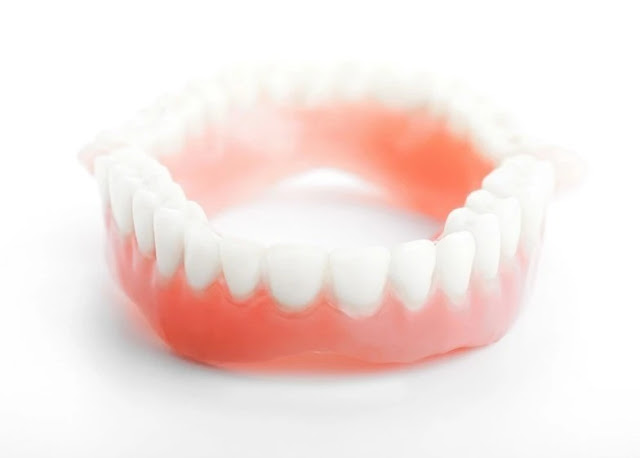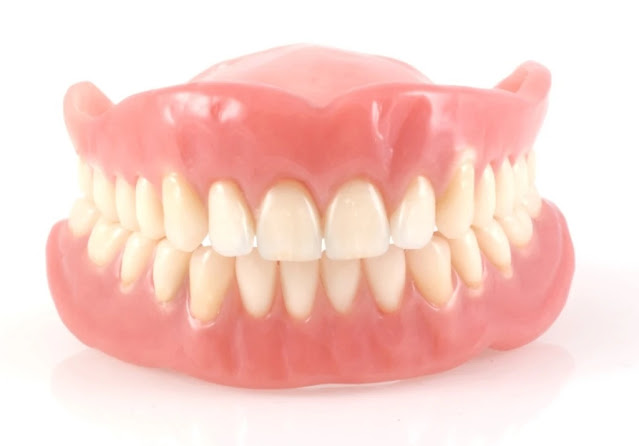Top Differences Between Fake Teeth and Dental Implants
Have you had some teeth extracted? Besides the unappealing look, individuals are faced with a more serious issue related to chewing.
Fortunately, the speedy progress of technology offers natural teeth alternatives like dental implants and false teeth. These options serve the same purpose of helping individuals chew foods more easily, improving their speech, supporting facial muscles, and increasing their self-esteem.
These two dental solutions have certain differences despite of their identical purpose.
The following points of comparison will assist you in making the best choice for your dental future.

Procedure
Implants have gained incredible popularity in the past decade, particularly among adults in their mid-fifties and sixties. These structures require patients to have enough bone for the metal post to be inserted in the jawbone and then capped with the help of a crown. The procedure commences with the extraction of the damaged root unless it has been extracted previously.
Once the root extraction is completed, a hole has to be drilled deep enough into the jawbone. A prosthetic root, referred to as a post, is then implanted into the bone. The ultimate step of the procedure is for the top of the metal post to be fitted with a crown after the bone starts growing around it. It’s crucial for the bone to grow around the post so as to secure it in the right place fully.
It usually takes a few months before the post becomes secure enough to be provided with an abutment. The abutment refers to the piece necessary for the crown to be eventually fitted. Once everything is secured in place, the crown is then formed and placed on the prosthetic root to blend in with the surrounding teeth. This article, https://www.fda.gov/medical-devices/dental-devices/dental-implants-what-you-should-know, elaborates on the benefits, risks, and safety of dental implants.

False teeth, unlike implants, are removable and designed to fit your mouth irrespective of how much bone is actually present. These are also called dentures. False teeth can be entire sets used to replace all-natural teeth or partial sets to replace several teeth that are missing. The primary step to designing dentures is getting an impression of the upper gums, lower gums, or both, depending on your specific case.
Apart from taking an impression of your gums, your dentist will take time to study your bite and jaw alignment to ensure the dentures’ length doesn’t restrict individuals when speaking or chewing. Once the impression is made, preliminary dentures are made in a laboratory and later sent to your doctor. This set of false teeth will be placed inside your mouth to check if any length adjustments need to be made before the final set is produced.
False teeth are specially designed to look like your natural set of teeth. A special adhesive is used to bond the dentures to the gums.
Cost
Another point of comparison between false teeth and implants is their cost. Dental implants are known to be of a much higher cost, as a single implant costs anywhere between $1,000 and $3,000. In contrast, a mid-priced set of dentures costs the same, whereas a premium set of false teeth could cost between $3,500 and $15,000. Consequently, getting dental implants would require a larger budget.
Maintenance
The following point of comparison between dental implants and false teeth is maintenance. The care requirements for the former are similar to the standard hygiene practices for your natural set of teeth. Hence, you should brush them twice daily, floss, and have the implants regularly checked. Conversely, dentures require more daily maintenance to be used for a longer period. These shouldn’t be worn overnight but soaked in a cleaning solution or water.

Cleaning your false teeth should be performed daily by removing them after having a meal. You are supposed to brush them but also brush any adhesive left on your gums. Since bite changes occur over time, your dentures will have to be occasionally refitted. Implants, however, require a complete crown replacement if broken or cracked.
Potential complications
Both dental implants and false teeth are safe and effective solutions. Nevertheless, there are potential complications that might occur in both cases. For instance, implant complications usually include mechanical problems and infections. The most frequent mechanical problems are cracked crowns or loose posts. Conversely, denture complications involve their inability to stay in place and the formation of sores on the gums.
How to make a decision?
Making a decision about the future of your dental health can be a tough journey. Make sure to click here and discover more about the difference between dental implants and dentures. The decision-making process can be facilitated by considering a variety of important factors, such as age, bone density, hygiene, and function.

Individuals who are sixty or younger would be better off with implants, as this solution is far more permanent. They will be able to enjoy their prosthetic teeth for several decades. Anyhow, older adults not interested in going through an invasive and time-consuming procedure should opt for dentures.
Bone density is a factor of tremendous importance when deciding whether you are a suitable candidate for dental implants. These structures require a certain jawbone amount to provide post support. Hence, individuals who have lost a significant bone material amount won’t be good candidates for this procedure. Some people consider bone grafting as an alternative to boost jawbone density, but this process is quite pricey.
Regarding hygiene, dental implants are more low-maintenance compared to dentures. Unless you are sufficiently willing to care for your false teeth, don’t opt for the denture solution. The function and feel provided by implants are considered better, as individuals are offered more comfort while chewing. There are alternatives to these solutions, such as dental bridges, temporary dentures, and snap-in dentures. Give them some thought before making a final decision.
In conclusion
The ultimate decision should be made in consultation with your dentist.
Consider your priorities and expectations in the decision-making process to prevent future disappointment!

No comments